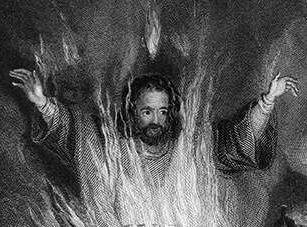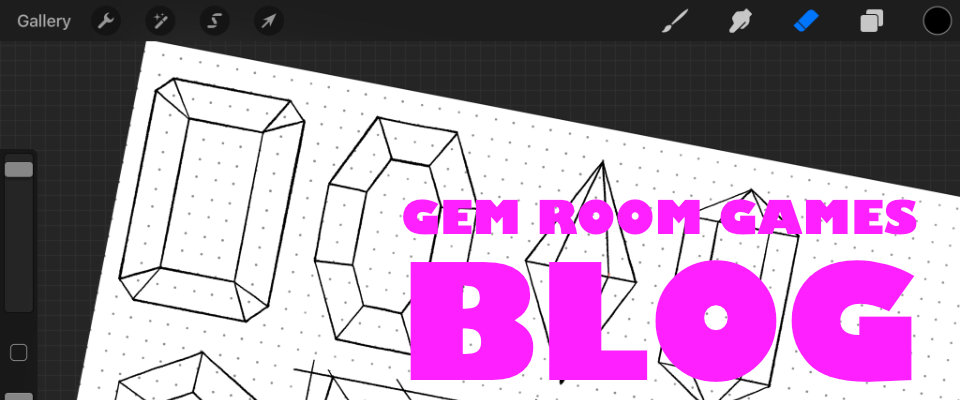The Problems Department
This probably isn't a new idea, but this time Dan is writing it!
The Problems Department

Recently Vincent Baker posted a useful thread describing how the various Apocalypse World playbooks create problems they don't have the tools to solve.
I love this thread because it's full of good problems. Problems aren't good for the characters, obviously, but they're great for the playing of the game. A single good problem jumpstarts the conversation of play, and a lot of good problems create opportunities to make interesting choices.
What is a problem?
As definitions go, "Problem: a matter or situation regarded as unwelcome or harmful and needing to be dealt with and overcome" is perfectly serviceable, but covers a lot of things we don't necessarily want to introduce in play. Problems should be (or should threaten to create) unwelcome or harmful situations, but the nature of that harm needs to be contextually appropriate. Problems should need to be dealt with and overcome, but the manner of the overcoming needs to be similarly aligned to the game we're setting out to enjoy. Mundane chores and uncomfortable status quos absolutely have their place, but neither is a Good Problem.
An aside on Opportunities: Some people are fond of saying that Problems are just Opportunities, but for our purposes I want to be very clear on the distinction. An Opportunity absolutely has the potential to be a good Problem, but only if the agony of missing that opportunity is sufficiently sharp.
The Perpetual Problem Machine
One of the things I judge a GMful, adventuresome tabletop RPG on is their ability to serve as a Perpetual Problem Machine. I should be able to put a single good problem in and have infinity problems come out. The engine works something like this:
- The GM presents a Problem
- The PCs attempt Solutions
- The Solutions create Problems
- The PCs forment Desires
- The GM turns Desires into Problems
- The Solutions solve Problems
- The GM presents several Problems
- The PCs go to step 2
- The Problems that aren't getting solved create Problems
And so on until scheduling conflicts bring it all to a close. There are a lot of ways a game's system, its setting, and its adventures can keep the Problem Machine running. They can shape and inspire player desires, they can create delicate status quos for the players to interrupt, they can create guard rails to keep the GM from prescribing solutions. As long as I walk in with one problem and walk out with 3, I'm happy.
What makes a Good Problem?
A non-exhaustive list of attributes that indicate a problem is a good one:
- Important
- The PCs have to care about something for the problem to be important. If the PCs don't care about anything, consider lighting the building they're in on fire.
- Urgent
- The more obvious the solution, the more urgent the problem can be. Subtle political machinations need time to properly explore in order to really engage with. Standing in a burning building can afford to be quite urgent because the solution (leave the building) is fairly self-evident.
- Impactful
- The outcome of success and failure should be signaled appropriately. Afterwards, the outcome should be felt intimately.
- Open
- Just because a problem has an obvious solution doesn't mean it has only one solution. In the face of a locked door a stick of dynamite, used appropriately, can be a very loud key.
- Respectful
- The problem should respect the player's actions. Sometimes that means giving them a small win alongside a crushing defeat. Sometimes that means the world doesn't pull its punches.
- Nested
- A good problem breaks down into smaller problems that are the concerns of smaller people. A good problem also ladders up to bigger problems that are the concerns of bigger people.
- Relative
- Some people simply don't want the world to be a better place. Your attempt to solve a problem is someone elses problem. When they find out, they're going to make problems for you.
- Expensive
- You have to ante up if you want to get dealt in. Travel time, bribes paid, promises broken, torches burned are all the cost of doing business for the opportunity to risk your life.
I was hoping this list would make a fun acronym, but most of these are vowels.
Your First Problem
After session zero, when characters are fresh and unplayed, when nobody knows what they want or how the world even really works yet, after the opening crawl has finished and the camera pans down to our heroes, its time to give them a problem.
I personally recommend placing asking them how they came to find themselves locked in this burning building.
The Gem Room Games Blog
that's it, it's our game design blog here on itch
| Status | In development |
| Category | Physical game |
| Author | Gem Room Games |
More posts
- Overloading the Faction Relationship51 days ago
- The Divine FactionMay 08, 2025
- Why and How to Blog on ItchJan 09, 2025
- 20 Reasons the Dungeon is TimedJan 04, 2025
- Lowlife DiceDec 27, 2024
- The Monster's Implied AdventureDec 27, 2024
- Every Snake His OtaconDec 27, 2024
- Hello WorldDec 26, 2024

Leave a comment
Log in with itch.io to leave a comment.